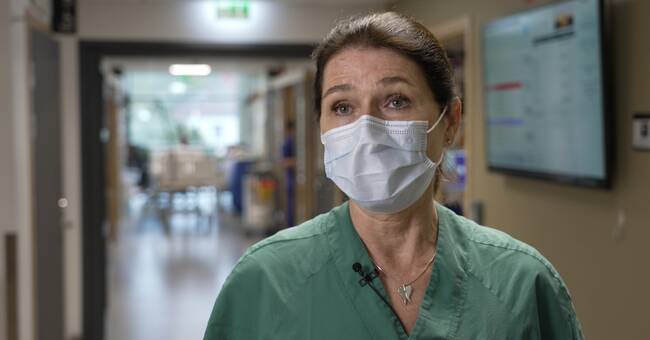It sounds from the alarms in the intensive care unit at Alingsås hospital.
A patient with cardiac arrest has just come in and the medical staff rush to the rescue.
Before the pandemic, they had three intensive care units, then they were forced to expand to six.
But not even that was enough when SVT was visiting.
Then they had eight patients.
- We do not really have the staff to cope with it, but thanks to hard efforts and overtime it is possible, says Annette Nyberg, chief physician at Alingsås Hospital and chairman of the Swedish Association for Anesthesia and Intensive Care.
They are far from alone.
SVT has reviewed the minutes from the meetings that the country's intensive care units and the National Board of Health and Welfare have had since the beginning of the pandemic.
The situation in recent months has been extreme
On the eighth of April this year, the "worst situation during the entire pandemic" is noted with only 12 percent spare capacity nationally.
In the protocols, we can see that there is an urgent need to move patients and that several regions state that the margins are small.
One region reports that they hope to be able to cope for another day, another that it is already full.
- There is no doubt that it is a terribly unreasonably difficult situation, says Taha Alexandersson, Deputy Head of Crisis Preparedness at the National Board of Health and Welfare.
How do you see that the vacant capacity has been below 20 percent since the end of March?
- It is another measure that shows how extremely strained the care is, says Taha Alexandersson.
But many in intensive care are opposed to even talking about spare capacity.
- We have already increased far beyond what we can handle, says Annette Nyberg.
Appeals for help
At the meetings between the country's intensive care units, the question of Sweden seeking support from neighboring countries has now been raised several times.
- They have not had as many patients as we have and therefore they have not worked as hard on their staff, says Annette Nyberg.
- So far, we have judged that this can be handled by healthcare nationally in Sweden, says Taha Alexandersson.

